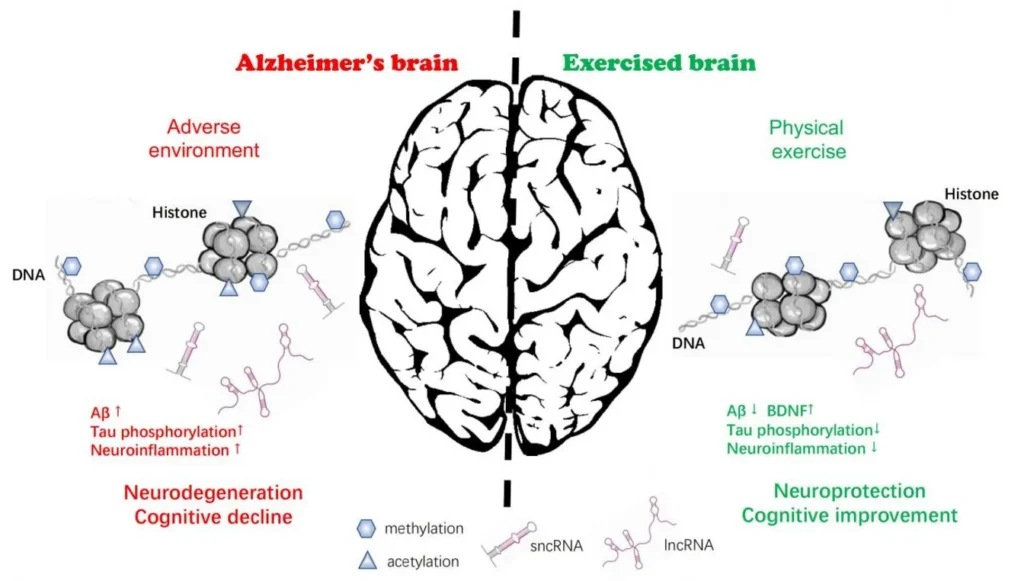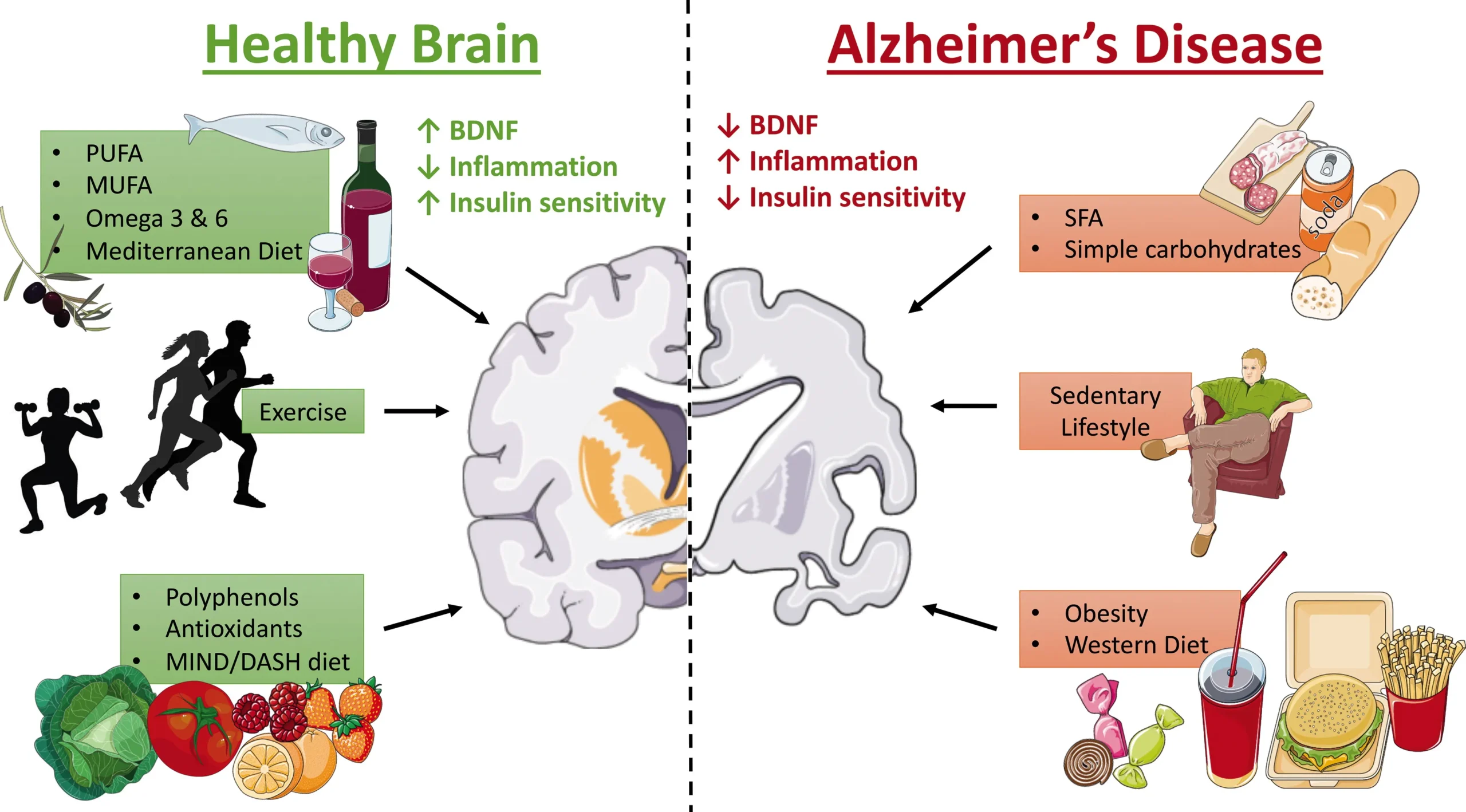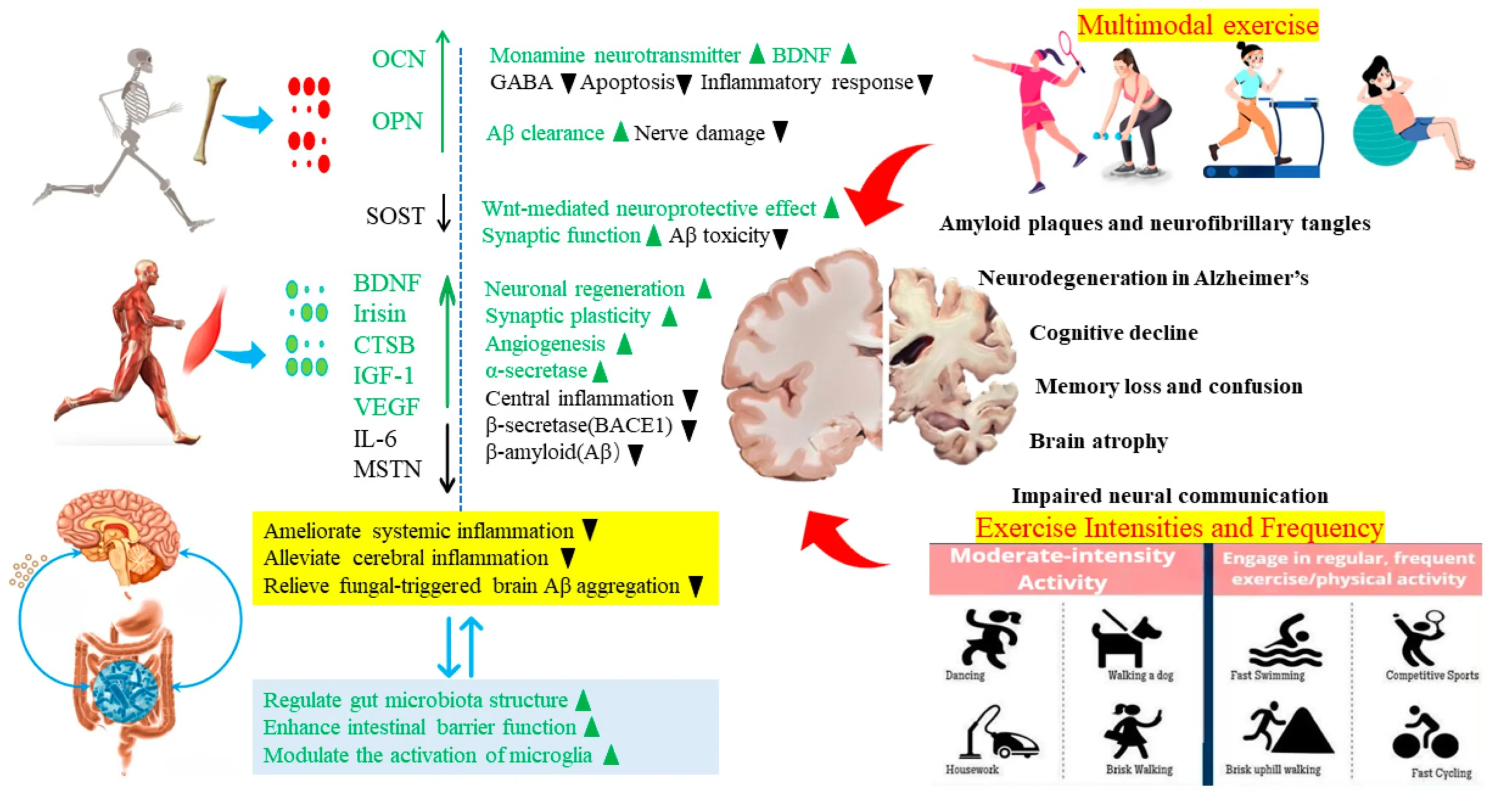
Recent research from the EXERT study (Exercise in Adults with Mild Memory Problems) sheds light on a groundbreaking approach to Alzheimer’s prevention: exercise. The study, which followed older adults with mild cognitive impairment (MCI) for 12 months, revealed that both low-intensity and moderate-high intensity exercise can significantly slow cognitive decline and help preserve brain health. The findings, published in Alzheimer’s & Dementia: The Journal of the Alzheimer’s Association, bring us one step closer to understanding how simple, accessible interventions could prevent the devastating effects of Alzheimer’s disease.

Exercise’s Impact on Brain Health
For years, scientists have speculated that physical activity might help combat the cognitive decline associated with Alzheimer’s, but large-scale, conclusive studies were scarce. The EXERT study, led by researchers from the University of California San Diego (UCSD) and Wake Forest University, aimed to change that. With nearly 300 sedentary older adults diagnosed with amnestic mild cognitive impairment (MCI) — a condition marked by memory problems and a major risk factor for Alzheimer’s — the study explored whether structured exercise could help slow down the decline in both cognitive abilities and brain volume.
A Year of Results
Over the course of 12 months, participants in the study were divided into two exercise groups: one focused on moderate-high intensity aerobic training, and the other on low-intensity activities such as stretching, balance exercises, and range of motion exercises. In both cases, researchers were amazed to find that exercise helped participants maintain cognitive function and reduce brain volume loss, particularly in the prefrontal cortex, a region closely tied to memory and executive functions.
Aladdin Shadyab, Ph.D., M.P.H., the lead author of the study, emphasized the importance of these findings. “This is a critical time to intervene in this population because they don’t have dementia yet, but are at a very high risk,” he explained. “Even low-intensity exercise may slow cognitive decline in at-risk older adults.”
Slowing Cognitive Decline
The results were clear: exercise, regardless of intensity, had a protective effect on the brain. Participants who exercised experienced less cognitive decline compared to those who only received usual care, which typically includes regular check-ups and medication management. This is an encouraging development for older adults, especially considering that individuals with MCI are at a 16% annual risk of progressing to Alzheimer’s disease.
Howard Feldman, M.D., Director of the Alzheimer’s Disease Cooperative Study (ADCS) at UC San Diego, highlighted the potential real-world impact of this research. “EXERT was one of the first large clinical trials of exercise that partnered with the YMCA to bring the intervention closer to home for research participants,” Feldman said. “This approach brings us one step closer to its implementation in the community.”
Bridging the Gap: Exercise in the Community
One of the most significant aspects of the EXERT study is its focus on community-based fitness interventions. The study partnered with local YMCA trainers to ensure that participants received tailored, supervised exercise routines. The findings highlight the feasibility of using accessible, community-based programs to improve brain health and prevent dementia, making it possible for older adults to take control of their cognitive well-being.
The Power of Simple Activities

What’s even more exciting is that low-intensity exercises like stretching, balance, and range-of-motion activities were just as effective at slowing cognitive decline as more intense aerobic exercises. This offers a promising pathway for older adults who may not be able to engage in high-intensity workouts due to mobility issues or other health concerns.
Laura Baker, Ph.D., Principal Investigator of the EXERT study, expressed her excitement about the potential impact of these findings. “Exercise has well-documented benefits to nearly every aspect of human health, but we’re still unlocking the full potential of exercise as medicine for older adults with memory problems,” Baker said. The study, she added, paves the way for further research into exercise’s potential as a preventive treatment for Alzheimer’s.
Key Takeaways
- Exercise Slows Cognitive Decline: Both low-intensity and moderate-high intensity exercise helped preserve cognitive function over 12 months.
- Brain Volume Preservation: Participants in both exercise groups showed less brain volume loss, particularly in the prefrontal cortex.
- Community Feasibility: The collaboration with YMCA shows that implementing exercise programs in the community is a feasible and practical approach for Alzheimer’s prevention.
- Simple Exercise Works: Even low-intensity activities like stretching and balance exercises can help slow down cognitive decline.
The Future of Alzheimer’s Prevention
While the EXERT study has provided a promising glimpse into the role of exercise in preventing Alzheimer’s, more research is needed to confirm these findings. However, the results thus far offer hope for millions of individuals living with mild cognitive impairment and at risk of developing Alzheimer’s disease.
Shadyab added, “Though there’s still a lot to learn, these findings show that regular intensity exercise, even at low intensity, could go a long way toward helping older adults slow or delay cognitive decline.”
As we continue to unravel the mystery of Alzheimer’s, the message from the EXERT study is clear: Exercise might just be one of the most effective, accessible, and practical tools in the fight against cognitive decline.
